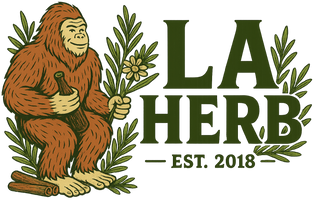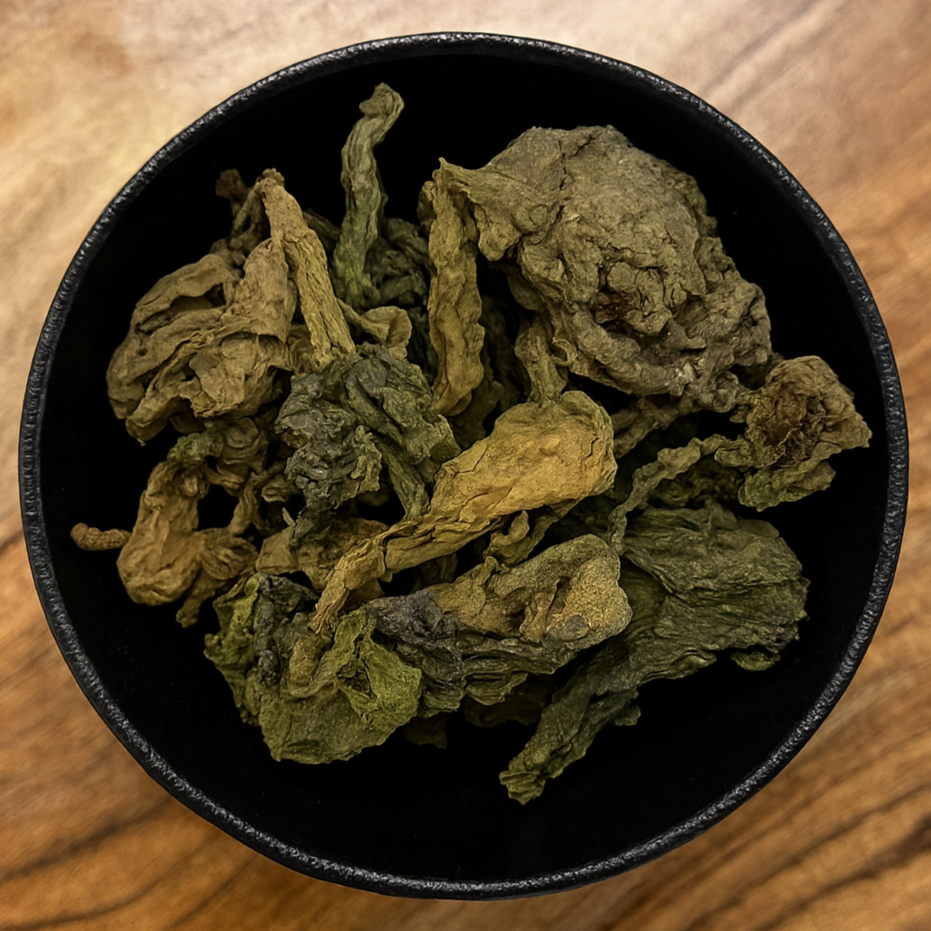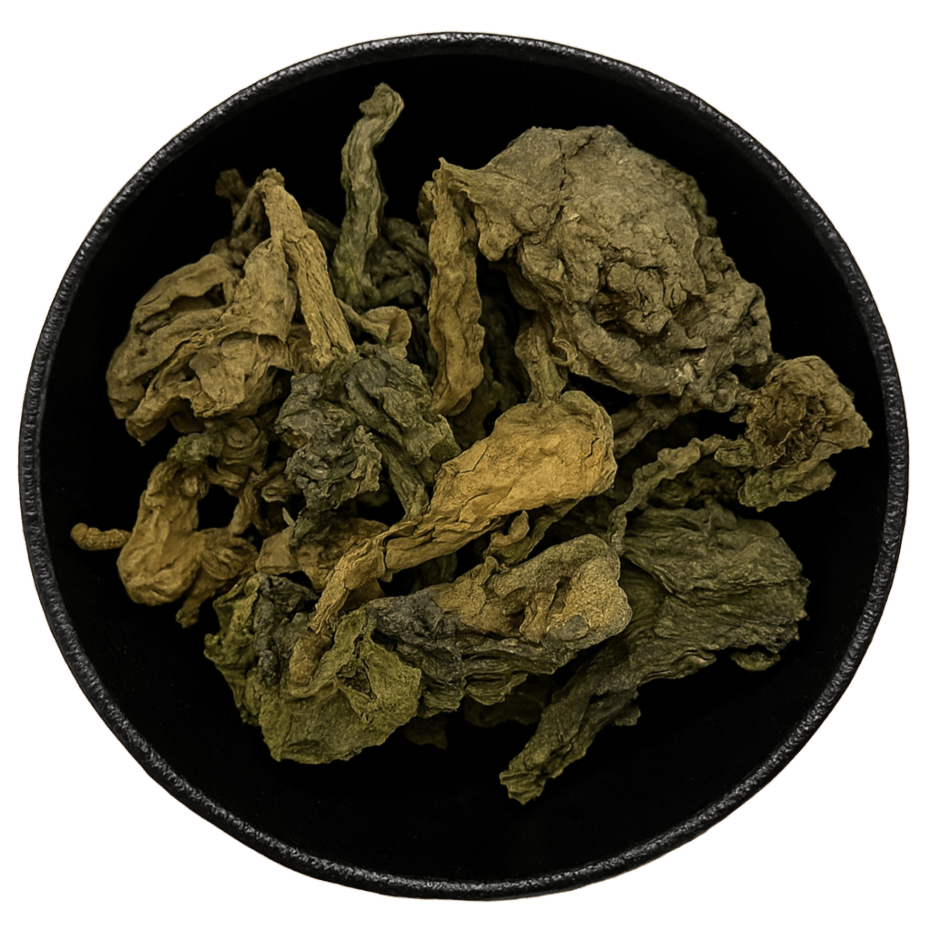Kelp Whole (Laminaria Japonica)
Kelp Whole (Laminaria Japonica) - 1 oz is backordered and will ship as soon as it is back in stock.
Couldn't load pickup availability
Kelp Whole (Laminaria japonica) is the dried seaweed of a brown marine alga long valued in traditional Chinese medicine (TCM), Japanese Kampo medicine, and coastal herbal traditions for its softening, detoxifying, and thyroid-supporting properties. Known in TCM as Kun Bu, kelp has been used for centuries as both a nutritive sea vegetable and a functional medicinal herb that helps to transform phlegm, dissipate nodules, and promote healthy metabolism.
In traditional practice, Kelp is regarded as salty and cold in nature, entering the Liver, Stomach, and Kidney channels. It is used to clear heat, resolve phlegm, and soften hardness, making it a classical ingredient for goiter, lymphatic swelling, and phlegm accumulation. It is also used to promote urination, reduce edema, and balance internal heat.
Beyond TCM, Kelp has been a staple in East Asian diets for its rich mineral content, particularly iodine, calcium, magnesium, and iron, which are essential for thyroid health, electrolyte balance, and vitality. In Japanese and Korean cuisine, it is known as Kombu, used in broths, soups, and teas that promote digestion and detoxification.
Modern studies of Laminaria japonica highlight its abundance of iodine, fucoidan, alginates, and polyphenols, compounds associated with thyroid support, immune modulation, anti-inflammatory activity, and heavy metal detoxification. These properties make Kelp both a nutritional food and a therapeutic herb.
Each batch of Kelp Whole (Laminaria japonica) is carefully harvested from clean ocean waters and naturally dried to preserve its deep color, mineral integrity, and nutrient density. When soaked or simmered, it rehydrates into broad, tender seaweed sheets suitable for use in soups, herbal decoctions, or wellness tonics.
Note: Due to its naturally high iodine content, Kelp should be used mindfully by individuals with thyroid disorders and is not recommended in excessive amounts without guidance from a qualified practitioner.
Also Known As: Kun Bu, Hai Dai (海带 – closely related species), Thallus Eckloniae, Japanese Kelp, Sea Tangle
Nutrients: Iodine, alginic acid, laminarin, fucoidan, mannitol, polysaccharides, vitamins A, B1, B2, C, E, calcium, magnesium, potassium, iron
Notes: In Traditional Chinese Medicine, Kun Bu is used to soften hardness, dissipate nodules, and promote urination. Commonly prescribed for goiter, scrofula, and edema caused by phlegm stagnation. In food use, kelp is also a mineral-rich sea vegetable widely used in soups, broths, and stews, particularly in Japanese and Chinese cuisines. Modern studies highlight its antioxidant, thyroid-supporting, and metabolic-regulating properties. Caution: Not recommended for individuals with iodine sensitivity, hyperthyroidism, or those on thyroid medication.






